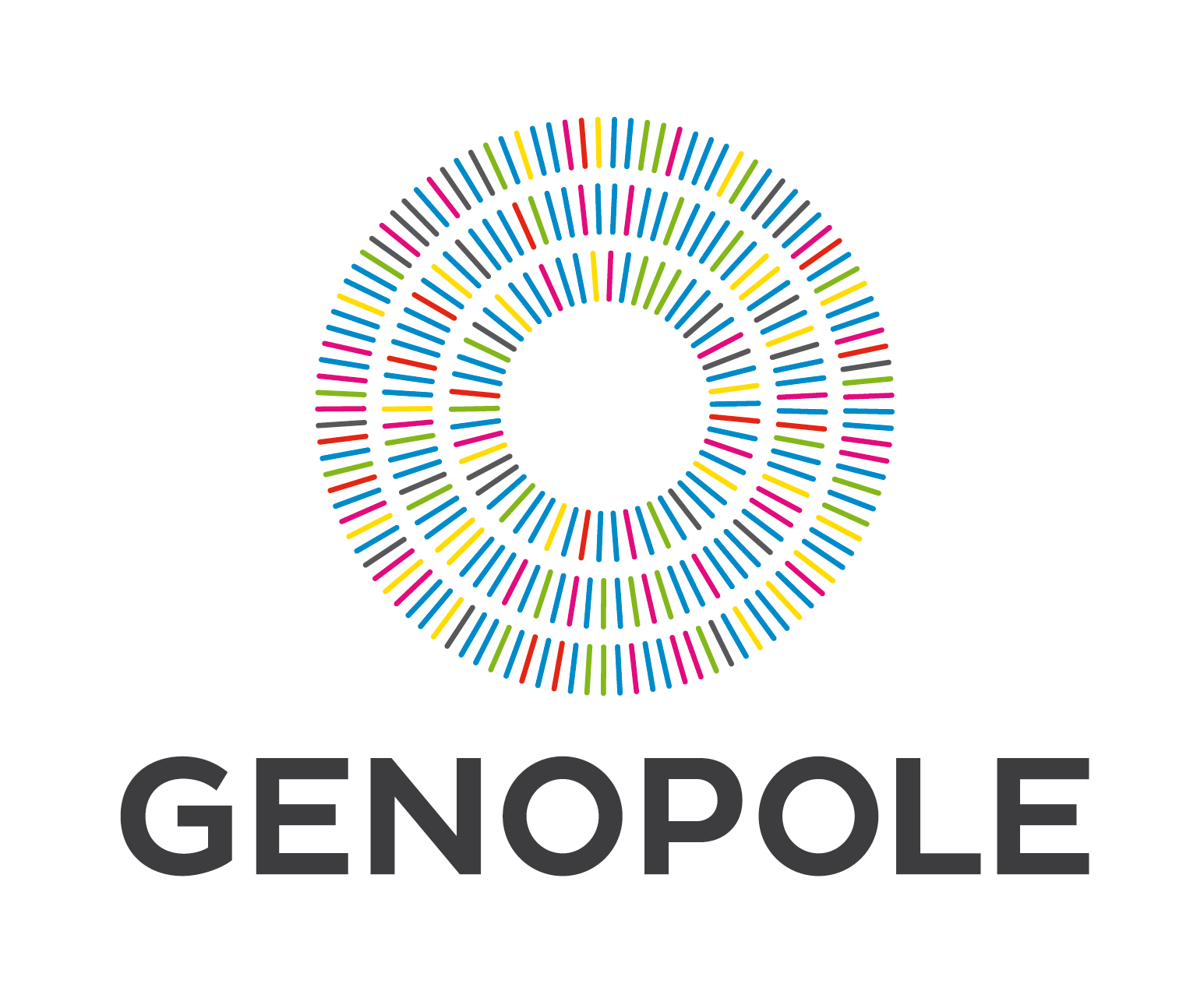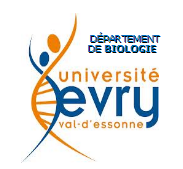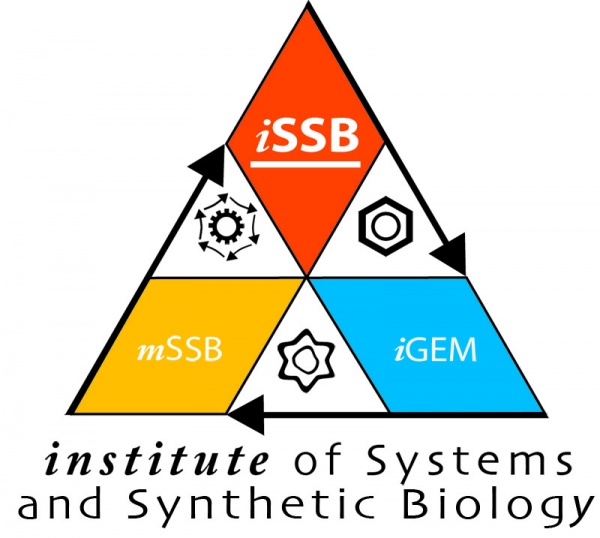Team:Evry/Protocols/13
From 2013.igem.org
| (3 intermediate revisions not shown) | |||
| Line 15: | Line 15: | ||
<h3>Restriction</h3> | <h3>Restriction</h3> | ||
| - | <p>For restriction you need: | + | <p>For restriction you need: distilled water, Bovine Serum Albumin (BSA, <i>used to stabilize restriction enzymes</i>), Restriction Buffer 1,2,3 or 4 (buffer 2 works for all combinations of EcoRI-HF, XbaI, PstI, SpeI), two restriction enzymes per sample. |
| + | <br/> | ||
| + | Determine which restrictions enzymes and Buffer you need using openwetware.org<sup><a href=' http://openwetware.org/wiki/Enzyme_selection_for_BioBricks_digest' target='_blank'>1</a></sup>.<br/> | ||
| + | Determine the DNA-concentration of the vector and the insert. <br/> | ||
| + | Prepare restriction mix for all restrictions,for each reaction add: | ||
| + | <ul> | ||
| + | <li>12,5 μl od distilled water | ||
| + | <li>5,0 μl of Buffer 1,2,3 or 4 | ||
| + | <li>0,5 μl of BSA | ||
| + | <li>1,0 μl of restriction restriction enzyme 1 | ||
| + | <li>1,0 μl of restriction restriction enzyme 2 | ||
| + | </ul> | ||
| - | + | <p>Then, for each reaction, add: | |
| + | <ul> | ||
| + | <li>20 μl restriction mix previously prepared to a PCR-tube | ||
| + | <li>1 μg of DNA. | ||
| + | <li>Distilled water, until your reach a total volume of 50 μl | ||
| + | </ul> | ||
| - | + | Incubate for 2 hours at 37°C, then put your tubes 20 minutes at 80°C to inactivate the restriction enzymes.</p> | |
| - | |||
| - | |||
| - | + | <h3>PCR Purification</h3> | |
| - | + | <p>Purify the restriction digest, and then determine the concentration of the purified DNA with Nanodrop.<br/> | |
| + | For more information, see the <a href="https://2013.igem.org/Team:Evry/Protocols/11" target='_blank'>PCR purification protocole</a>.<br/></p> | ||
| - | + | <h3>Ligation</h3> | |
| - | + | <p> | |
| + | Prepare ligation mix.<br/> | ||
| + | Prepare two extra reactions, “No insert” and “No ligase” that will be used as negative controls. | ||
| + | </p> | ||
| - | + | <table cellpadding="10" cellspacing="0" align='center' border="1"> | |
| + | <thead> | ||
| + | <tr> | ||
| + | <th align="center"> | ||
| + | |||
| + | </th> | ||
| + | <th align="center"> | ||
| + | Per vector/insert | ||
| + | </th> | ||
| + | <th align="center"> | ||
| + | No insert | ||
| + | </th> | ||
| + | <th align="center"> | ||
| + | No ligase | ||
| + | </th> | ||
| - | + | </tr> | |
| + | </thead> | ||
| + | <tbody> | ||
| + | <tr> | ||
| - | 5 | + | <td align="center"> |
| + | Ligase | ||
| + | </td> | ||
| + | <td align="center"> | ||
| + | 0,5 μL | ||
| + | </td> | ||
| + | <td align="center"> | ||
| + | 0,5 μL | ||
| + | </td> | ||
| + | <td align="center"> | ||
| + | 0 | ||
| + | </td> | ||
| + | </tr> | ||
| + | <tr> | ||
| + | <td align="center"> | ||
| + | Vector | ||
| + | </td> | ||
| + | <td align="center"> | ||
| - | + | </td> | |
| + | <td align="center"> | ||
| - | + | </td> | |
| + | <td align="center"> | ||
| - | + | </td> | |
| + | </tr> | ||
| + | <tr> | ||
| + | <td align="center"> | ||
| + | Insert | ||
| + | </td> | ||
| + | <td align="center"> | ||
| - | + | </td> | |
| + | <td align="center"> | ||
| + | 0 μL | ||
| + | </td> | ||
| + | <td align="center"> | ||
| - | + | </td> | |
| + | </tr> | ||
| + | <tr> | ||
| + | <td align="center"> | ||
| + | Distilled water | ||
| + | </td> | ||
| + | <td align="center"> | ||
| - | + | </td> | |
| + | <td align="center"> | ||
| - | < | + | </td> |
| + | <td align="center"> | ||
| - | + | </td> | |
| - | + | </tr> | |
| - | + | <tr> | |
| - | < | + | <td align="center"> |
| - | + | 10X Buffer | |
| + | </td> | ||
| + | <td align="center"> | ||
| + | 2 μL | ||
| + | </td> | ||
| + | <td align="center"> | ||
| + | 2 μL | ||
| + | </td> | ||
| + | <td align="center"> | ||
| + | 2 μL | ||
| + | </td> | ||
| + | </tr> | ||
| + | <br/> | ||
| + | </tr> | ||
| + | </table> | ||
| - | + | <p> | |
| + | For each reaction,add: <br/> | ||
| + | <ul> | ||
| + | <li>50 ng of vector-DNA. | ||
| + | <li>Insert in three times molar excess, then add 3·50·(<i>length of insert/length of vector</i>) ng of insert-DNA. | ||
| + | <li>Distilled water, until your reach a total volume of 20 μl | ||
| + | </ul> | ||
| + | <small><b><i>Note: For “No insert” omit the insert-DNA, for “No ligase” omit the ligase and replace with H2O.</i></small></b></br> | ||
| + | Then, incubate all your tubes for 30 minutes at 16°C.</p> | ||
| + | |||
| - | + | <h2>Transformation Test </h2> | |
| - | + | ||
| - | < | + | <a href="https://2013.igem.org/Team:Evry/Protocols/02" target='_blank'>Transform</a> the ligation product with <a href="https://2013.igem.org/Team:Evry/Protocols/01" target='_blank'>competent cells</a>, and also "No insert" and "No ligase" controles.<br/> |
| + | <ul> | ||
| + | <li>If no colonies form in both controle, the restriction was perfect for both the restriction enzymes.<br/> | ||
| + | <li>If colonies form in both cases, neither of the restriction enzymes worked well. Most of the transformants will contain the vector only.<br/> | ||
| + | <li>If the “No insert” control resulted in many colonies but “No ligase” did not, one of the enzymes worked well and the other did not. Most of colonies will carry the self-ligated vector.<br/> | ||
| + | </ul> | ||
| + | <p>Re-isolate colonies.<br/> | ||
| + | Check that colonies have been successfully transformed (e.g. by PCR).<br/> | ||
| + | Inoculate those colonies in overnight culture for further use.<br/> | ||
| + | Send your part to iGEM registry !<br/></p> | ||
| + | <div id="citation_box"> | ||
| + | <p id="references">Reference:</p> | ||
| + | <ol> | ||
| + | <li> http://openwetware.org/wiki/Enzyme_selection_for_BioBricks_digest </li> | ||
| + | </ol> | ||
| + | </div> | ||
</div> | </div> | ||
</div> | </div> | ||
Latest revision as of 20:30, 4 September 2013
BioBrick Assembly
Goal
Once you have your constructions on your plasmids, you need to biobrick them before sending them to the registry.
Preparation
Restriction
For restriction you need: distilled water, Bovine Serum Albumin (BSA, used to stabilize restriction enzymes), Restriction Buffer 1,2,3 or 4 (buffer 2 works for all combinations of EcoRI-HF, XbaI, PstI, SpeI), two restriction enzymes per sample.
Determine which restrictions enzymes and Buffer you need using openwetware.org1.
Determine the DNA-concentration of the vector and the insert.
Prepare restriction mix for all restrictions,for each reaction add:
- 12,5 μl od distilled water
- 5,0 μl of Buffer 1,2,3 or 4
- 0,5 μl of BSA
- 1,0 μl of restriction restriction enzyme 1
- 1,0 μl of restriction restriction enzyme 2
Then, for each reaction, add:
- 20 μl restriction mix previously prepared to a PCR-tube
- 1 μg of DNA.
- Distilled water, until your reach a total volume of 50 μl
PCR Purification
Purify the restriction digest, and then determine the concentration of the purified DNA with Nanodrop.
For more information, see the PCR purification protocole.
Ligation
Prepare ligation mix.
Prepare two extra reactions, “No insert” and “No ligase” that will be used as negative controls.
| Per vector/insert | No insert | No ligase | |
|---|---|---|---|
| Ligase | 0,5 μL | 0,5 μL | 0 |
| Vector | |||
| Insert | 0 μL | ||
| Distilled water | |||
| 10X Buffer | 2 μL | 2 μL | 2 μL |
For each reaction,add:
- 50 ng of vector-DNA.
- Insert in three times molar excess, then add 3·50·(length of insert/length of vector) ng of insert-DNA.
- Distilled water, until your reach a total volume of 20 μl
Transformation Test
Transform the ligation product with competent cells, and also "No insert" and "No ligase" controles.- If no colonies form in both controle, the restriction was perfect for both the restriction enzymes.
- If colonies form in both cases, neither of the restriction enzymes worked well. Most of the transformants will contain the vector only.
- If the “No insert” control resulted in many colonies but “No ligase” did not, one of the enzymes worked well and the other did not. Most of colonies will carry the self-ligated vector.
Re-isolate colonies.
Check that colonies have been successfully transformed (e.g. by PCR).
Inoculate those colonies in overnight culture for further use.
Send your part to iGEM registry !
Reference:
- http://openwetware.org/wiki/Enzyme_selection_for_BioBricks_digest
 "
"













